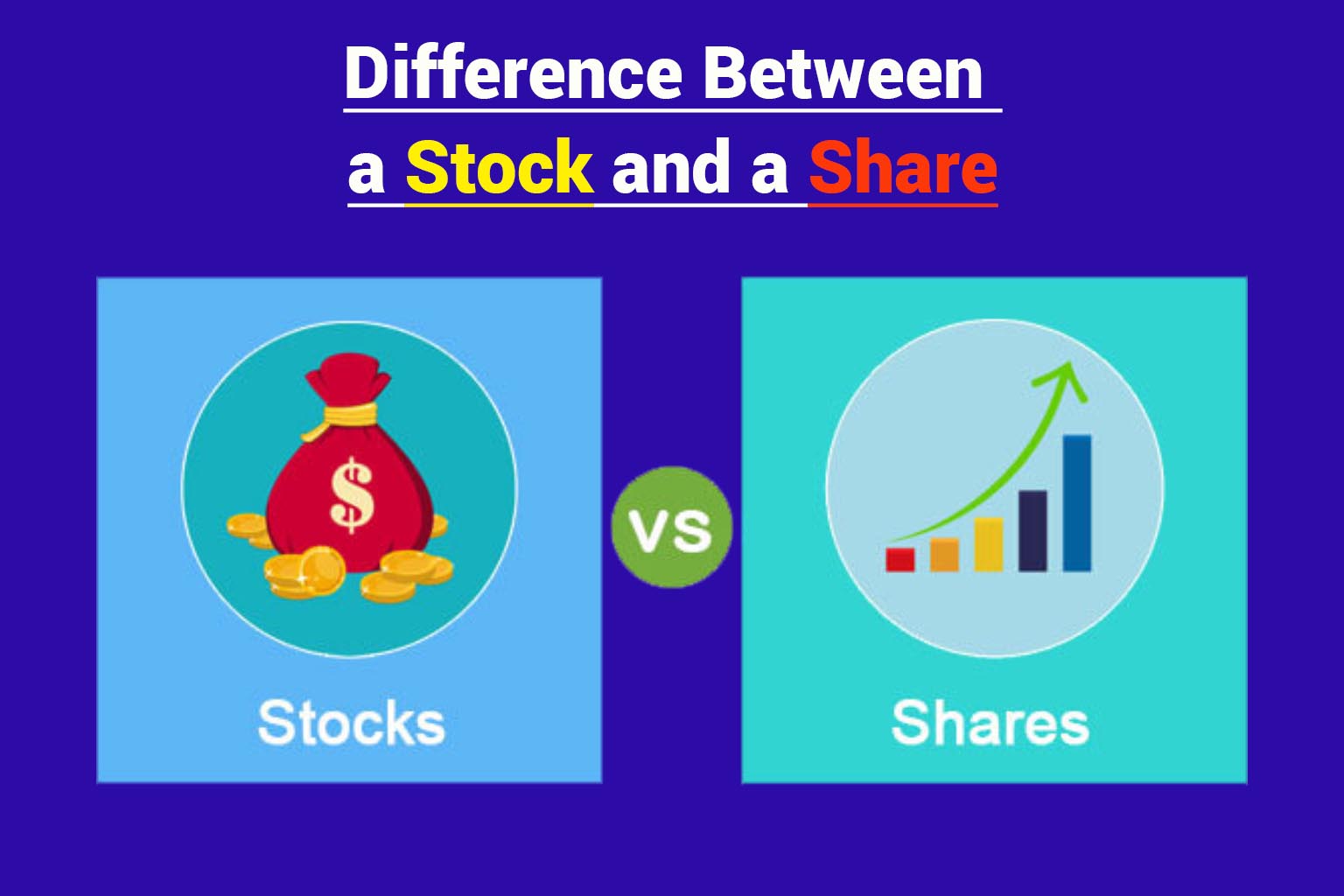

In the financial market, the words shares and stocks are used interchangeably when we talk about stock exchange or the ownership of an establishment. But they don’t mean the same thing in the literal sense. As an investor or a trader, you must know the key difference between the stock and a share and use them when and where required. But before understanding their technical meaning, it is essential to know their literal meaning in day-to-day life.
General Meaning of a Share – A share is a part out of something bigger. For example, you can have your share in your father’s property, have your share of the pie in a party, etc.
General Meaning of a Stock – A stock means a collection or stack of something. For example, the godown contains a stock of the raw material needed for a manufacturing business.
To understand the difference between a stock and a share in the market, you must know the technical definitions of these terms.
What is a Share?
A share is the smallest denomination of the company’s stock and represents the proportion of ownership in a company. In a company, each unit of a stock is a share. For example, an individual A owns 100 shares of XYZ Inc. If XYZ Inc. has 1 lakh shares, then we can say that X owns 0.1% of the company. Any entity or an individual with 10% ownership in a company, is termed as a principal stockholder (regardless of how many shares are held).
When you buy shares, you earn interest on the money invested as well as the dividends. The money that you invest in the company increases its value in the market which in turn increases the price of the share. You can sell these shares at a higher price and get higher returns on your investment. Shares are mostly divided into preference shares and equity shares and are issued at par, discount, or premium.
What is a Stock?
A stock is financial security representing the part-ownership in 1 or more companies. When you buy a stock, you automatically become a shareholder of the company. The stock certificate states the number of stocks that you hold and serves as proof of ownership in the company. You can buy stocks of one or multiple companies and there isn’t any limit on the number of stocks you can hold.
As an investor, you will buy the stocks of companies with a high chance of an increase in value. When the price of the stock rises, you can sell it and earn a profit. As you are part owner of the company, you will also receive a part of the company’s profit in the form of dividends. Buying stocks is a good way to earn money and it also reduces the impact of market inflation over time.
Stock vs Share: Key Differences
Following are the points of difference between a stock and a share:
- Definition – Share refers to a single unit of ownership in a company or a corporation. On the other hand, a stock represents the part-ownership of a holder in one or more companies.
- Nominal Value – It is the value assigned to a share when the stock is issued. Nominal value is different from the market value. There is no nominal value associated with the stocks.
- Denomination – Two different shares of a company have the same or equal value. But the two different stocks of a company may or may not have the same or equal value.
- Numeric Value – A share has a definite number which is also known as a distinctive number. Stocks do not have any such number.
- Paid-Up Value – Shares are either partially paid up or fully paid up. However, the stocks are always fully paid up in nature.
- Possibility of Original Issue – It is possible for a share but not in the case of a stock.
- Transfer – A share cannot be transferred infractions but the stocks can be transferred infractions.
- Kind of Investment – Shares may refer to a group of financial institutions like securities. They may include exchange-traded funds, mutual funds, limited partnerships, real estate investments, etc. On the other hand, stocks specifically refer to corporate securities and equities traded on a stock exchange.
Summing Up
There is a subtle difference between a stock and a share. If you are planning to learn about the stock market or take a plunge into equity investments, it is essential to know the meaning of these terms to avoid unnecessary confusion. Once you have a strategy in place, you can buy individual shares and build a portfolio of stocks. Ensure that your portfolio is diversified as it will safeguard your investments during market volatility.














